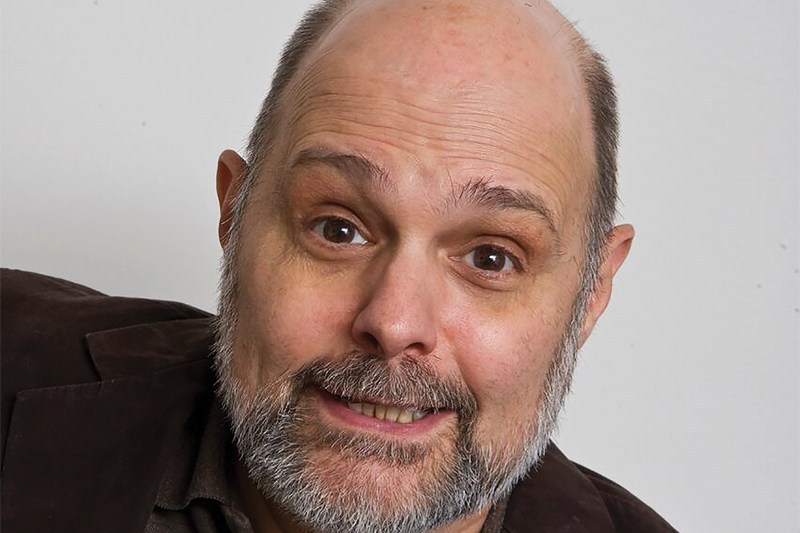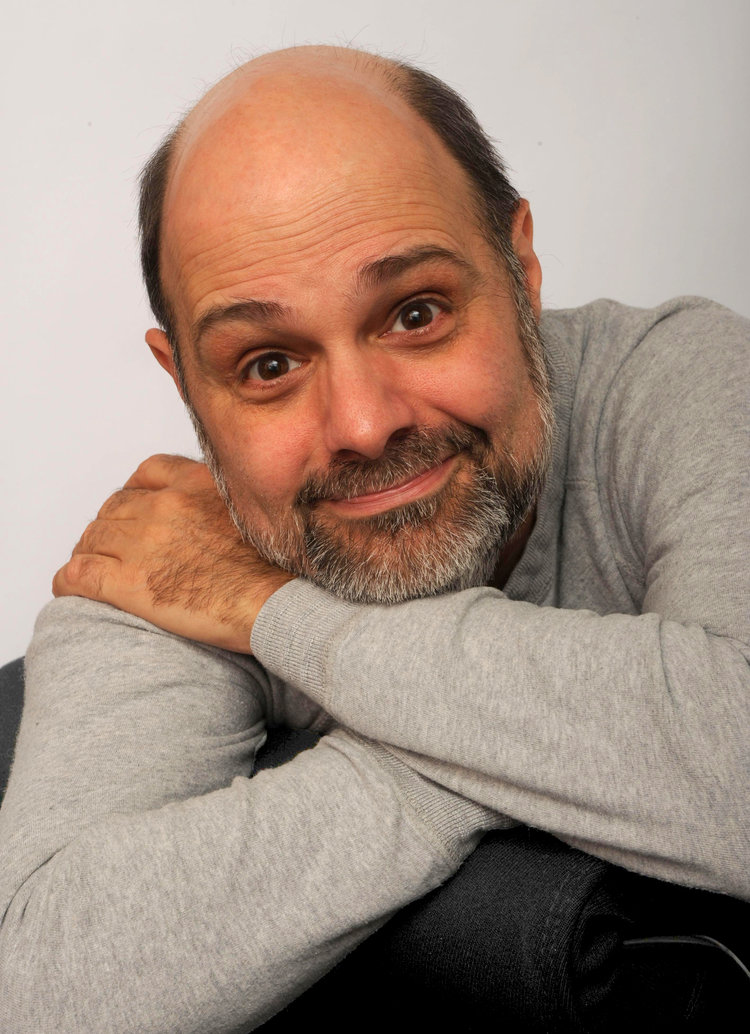by Walter Ryce
Satirist Joe Raiola intends to be provocative and is not shy about using words that make many people cringe. He says humor that makes people comfortable is just “a massage.”
Photo: Mike Thut
Joe Raiola – political satirist, stand-up comic, MAD Magazine editor emeritus, and director of the 30-plus-years of the John Lennon Tribute concerts – counts among his “Mt. Rushmore of comedy” the legends Dick Gregory, Lenny Bruce, George Carlin and Richard Pryor.
He sees in them a common thread of unapologetic use of language to excoriate the hypocrisies and ills of society – even counter to public opinion or good taste.
“Gregory called his first book Nigger,” Raiola says. “His mom asked him why. He said, ‘Mom, whenever some racist uses the word he’ll be promoting my book.’ I love that. It speaks to my sensibilities as a satirist.”
Raiola calls them “great fearless comedians” and says their bravery and conviction gives him free rein with language. So does the context of his one-man show, The Joy of Censorship: Free Speech and Comedy in the Age of Political Correctness, which he’s bringing to Henry Miller Memorial Library in Big Sur this weekend.
He first conceived of the show about 25 years ago, has toured it to almost every state in the country (44 and counting), and intends to hit them all. In it he talks about the duty of comedians and satirists to deliver the truth with laughter, about the forces that try to restrain free speech, his forefathers of political satire. He’ll talk about the constructive and destructive power of words. Like nigger.
“I would not dishonor Dick Gregory by not using the word he chose for the title of his book when referencing it,” he says. “That’s part fo what gives the show juice and makes it provocative. It feels like an important show now.”
The Joy of Censorship has changed over the years, Raiola says, because there have been events in that time that have changed the landscape of free speech, comedy and culture. The first was 9/11. Or at least the atmosphere of fear and compliance that followed in its wake.
“That changed the tone dramatically,” Raiola says. “You had cartoons and music being banned” – Bill Maher lost his job at ABC, for example, after making controversial comments about 9/11. And Raiola observed an entire culture stiffening into a seemingly reflexive, uptight stance.
“It inspired me to go out with guns blazing [even] more,” he recalls. “Those are the times it’s most important for art of any kind.”
The second event was the 2015 shooting and killing of 12 (and injuring of 11) people at the offices of French satirical magazine Charlie Hebdo. This happened while Raiola was at MAD Magazine.
“That had a major psychological effect on us,” Raiola points out.
He says that Jews and Christians and members of other religions are made fun of all the time, but that there has been a fear of treading on Islam. And fear, he says, is a breeding ground of censorship.
“The other really cataclysmic incident was the election of Trump,” he says. “It really shows you the limits of the influence of comedians. We were united in despising Trump. We could see how dangerous he was. Satire is important, but maybe not as important as voting. We took that personally. He defeated us.”
President Donald Trump has cast the press and media as the enemy of the people. AWashington Post headline claims that as of April 2019 he’s made more than 10,000 false or misleading statements. He’s questioned whether Saturday Night Live’s satirical jokes about him are legal. That is scary to Raiola.
“If Saturday Night Live is illegal, then what comedy is legal?”
Raiola says there have been less seismic but just as consequential forces working against the power of satire and free expression: the Supreme Court using free speech and the exercise of religion to justify discrimination; social media substituting for real political action with re-tweets, likes and sharing; “cancel culture” smacking down comedians – like Samantha Bee, for calling Ivanka Trump a “feckless cunt” – when they’re deemed to have crossed a line.
Raiola’s show wades into controversy and politics, but he says he tries to keep it fun and funny; he shows stuff from MAD Magazine and talks about its role in dissent and mockery. (He was on the magazine’s staff for “an embarassing 33 years,” according to his bio.)
The “rants” section of his website contains lots of explicitly political humor, targeting both major parties. One recent rant, titled “National Emergencies I Would Declare Right now,” includes “the average length of a baseball game feels longer than the Mueller investigation.”
“Satire reveals truth through humor,” Raiola says. “The role of the satirist is not to make people feel comfortable. That’s a massage. That’s not what I do. I show up to provoke.”
So the show will not hold back, which Raiola sees as fitting in a library named after an author who was banned for decades for his own tendency not to hold anything back. There will be talk of scandalous subjects, but it won’t be a Michael “Kramer” Richards reactionary spew. There’s bound to be serious intellectual wrestling over censorship and free speech, but with some facet that makes people like Raiola go, “Holy shit, that’s interesting.”









